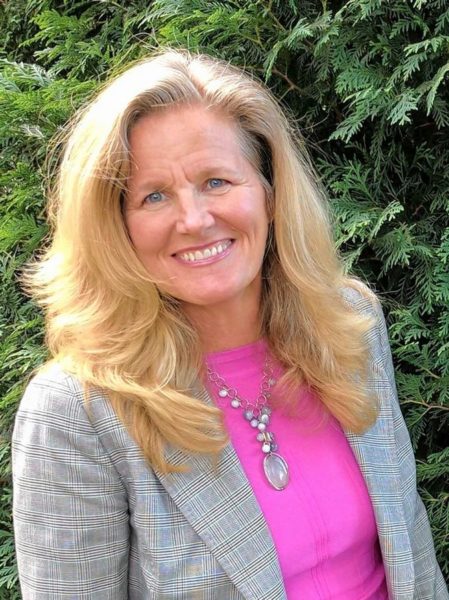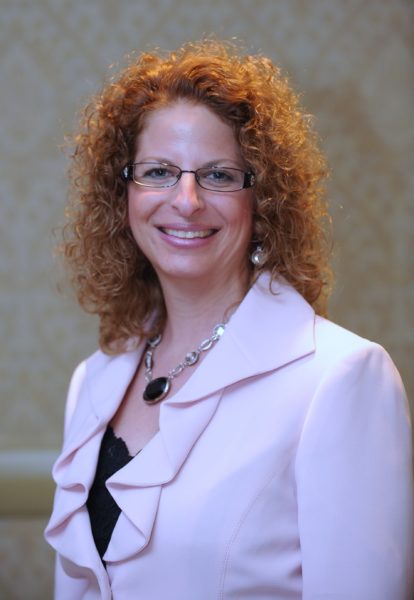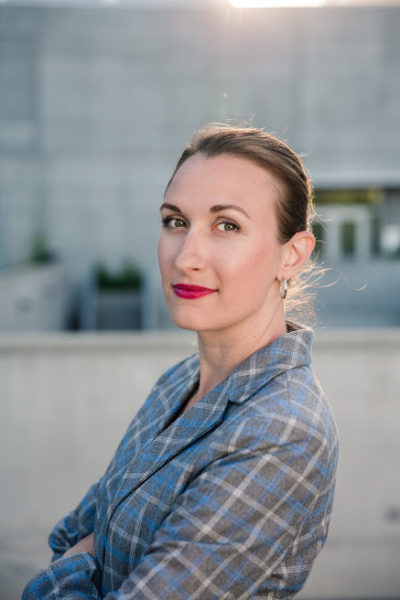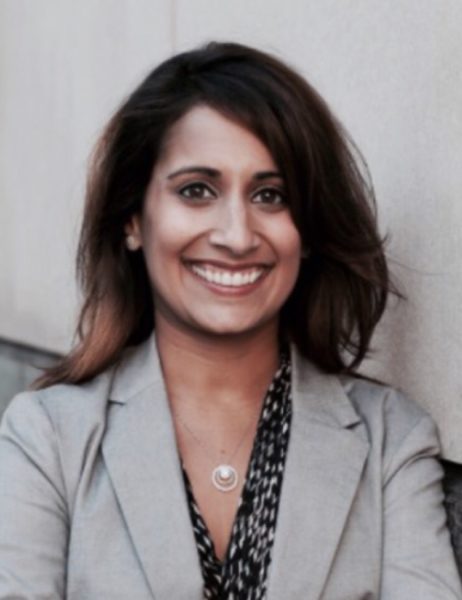by Marion Thurnauer,
member of AWIS-CAC since its inception and President (1987-88)
Backdrop
During the last year I came across a file containing documents pertaining to AWIS -CAC (Chicago Area Chapter). I have been a member of AWIS-CAC since its inception. However, the extent of my participation with the Chapter has varied over the years. One of the so-called silver linings of our current isolation is that I have been able to re-establish some interactions with Chicago AWIS virtually, as I currently live in Boulder, Colorado.
Here I present a selective ‘history’ of AWIS-CAC from its formation in 1978 until 1988. The ‘history’ is selective because it reflects the material I have saved and my involvement with the Chapter. My goal is to present the activities of the Chapter and hopefully a perspective on why AWIS-CAC has remained relevant for forty-two years.
First, I briefly digress. I received my PhD in Chemistry from the University of Chicago and joined Argonne National Laboratory (ANL) as a Post-Doc in 1974. I was promoted to a Scientific Staff position – Assistant Scientist in 1977. Subsequently, I moved through the ‘ranks’ and currently I am retired with the title Distinguished Fellow Emeritus. During my career (thirty years) at Argonne, I also served eight years as Director of the Chemistry Division. I was president of AWIS-CAC, June, 1987 – December, 1988. Following my term as president, I became involved with establishing and forwarding the Women in Science and Technology (WIST) program at ANL and committed less time to AWIS-CAC.
Inception of AWIS-CAC
My first memory of AWIS-CAC is from April, 1978 when I was invited to an informal lunchtime meeting in the cafeteria meeting room. I believe that this was my first experience (in the four years I had been at ANL) seeing so many women scientists in one room – many more than I had imagined as I was alone as a female PhD staff in the Chemistry Division (the different ANL divisions are scattered over a large campus). As I recall the main discussion at the meeting was whether or not to form a Chicago-area chapter of AWIS or form an ANL organization called LINK (I do not remember much about LINK, including the acronym.). It may be that because of the potential for forming a Chicago Area Chapter of AWIS, some attendees came from outside ANL; and this would explain the perception of a relatively large group of women.
It was decided to proceed and establish the Chicago Area Chapter (CAC) of AWIS. (see attached AWIS-CAC Formed 1978.pdf article in Suburban Life Graphic, July 26, 1978).
Apparently, LINK was also formed. I believe that LINK was an activity organized and run by ANL management (perhaps the Affirmative Action Office – an archaic title that one could argue morphed into Diversity and Inclusion offices today.) I do not know how long LINK functioned. I mention this detail to point out an observation; the programs that endure and continue to make an impact are those that are organized and run by the stakeholders.
AWIS-CAC Activities, 1987-88
Once formed, CAC was a very active chapter, holding meetings all over the Greater Chicago area. The number of members and activities varied over the years. For example, during the period I was president, the membership/participation was low. Nevertheless, we (a few women, many from DuPage County) maintained the Chapter, and I am happy to see how well the Chapter is doing today.
I have copies of AWIS-CAC Newsletters from 1987 and 1988 (June/July 1987, Sept/Oct 1987, Nov/Dec 1987, Nov/Dec 1988). They provide more than a glimpse of Chapter activities and interesting reading. I select two newsletters and accompanying material to highlight, as I consider them to be most informative. (note the AWIS-CAC logo)
I attach a copy of the Newsletter.June.July 1987.pdf. This Newsletter provides a detailed ‘flavor’ of AWIS activities, and includes the AWIS-CAC outgoing President’s (Betty Windom) Annual Report for 1986 and the 1986 AWIS-CAC Treasurer’s Report. The chapter was very busy in spite of the declining membership (one can see actual membership numbers – 1983-1986 in the treasurer’s report).
I attachNewsletter Nov.Dec 1988.pdf. In an attempt to increase membership, we mailed this Newsletter to 104 national AWIS members in the greater Chicago-land area who were not AWIS-CAC members. We included an AWIS-CAC information/profile page and a page listing Major AWIS-CAC Activities 1981-1988 Addendum Newsletter 1988.pdf.
In a separate attachment I provide a Long List Past Activities.pdf that includes more activities than the one-page Addendum list.
One can see from the Newsletters that AWIS-CAC continued many activities regardless of the number of members. Most meetings had a speaker on topics of interest, e.g., science, education, outreach related. I recall inviting an early career scientist to speak. She was so appreciative to have the opportunity and experience to speak about her research regardless of the small audience.
The Newsletters show AWIS activities included giving out awards, providing judges for local science fairs, annually presenting plaques and monetary prizes to students at the Chicago Public Schools Science Fair held at the Museum of Science and Industry, and maintaining a Speaker’s Bureau to provide speakers on request to local schools and events.
As I read the lists of past activities, I am struck by how many of the activities are outreach activities, impacting relatively large audiences. I was not present at the “helping her LOOK AHEAD” workshops, but it was common knowledge that they were highly successful. When we organized the first “Science Careers in Search of Women” workshop, for college women, at Argonne in 1987 (third item on short list), the “helping her LOOK AHEAD” workshops provided a template. The “Science Careers in Search of Women Conference” is still held annually for high school students. Last year it was a virtual conference.
The museum exhibit “MY DAUGHTER, THE SCIENTIST” had a relatively long run at the Museum of Science and Industry and also became a traveling exhibit. In the September/October 1987 Newsletter, I wrote “.. we recently received a letter from a teacher in Massachusetts who learned about AWIS-CAC via advance publicity from the Museum of Science, Boston, which will be showing the exhibit MY DAUGHTER, THE SCIENTIST.” She was requesting a copy of the “Bibliography of Career Pamphlets” [see below] which also originated from AWIS-CAC.
AWIS-CAC received a request from National AWIS to coordinate activities and plan symposia for the AAAS meeting held in Chicago in February, 1987. This activity is described in Betty Windham’s summary (Newsletter June.July 1987.pdf).
AWIS-CAC published a 37 page Bibliography of Career Pamphlets and other useful material (1984) updated 1988 (see attached Front Page Bibliography.pdf ). This document was very popular and available from National AWIS and AWIS CAC. (This was the time before widespread availability of the internet and Google.)
Involvement in Congressional Task Force
The 1988 Annual Report.pdf of my tenure as President June 1987 – December 1988 is attached. One activity summarized in my annual report, is Testimony to the Congressionally-Mandated Task Force on Women, Minorities, and the Handicapped in Science and Technology. I also attach a copy of my Testimony MCT.pdf. Information about the Task Force can be found in the attached Interim Report.pdf from the AWIS National Newsletter.
I was encouraged that the Task Force was mandated and held hearings in seven US cities in 1987 and 1988. The attached Interim Report.pdf states “The role of minorities, women, and people with disabilities in science and engineering is widely seen only as an equity issue, not as the key to future national strength in science and technology.” I recall articles and discussions during the time of the hearings, that posed the question “Who will do science in the year 2020?” At the time students choosing science and engineering were predominantly white males. Demographic projections showed that by 2000, white males would make-up only 25% of the US work force.
I do not know what if any specific actions were taken in response to the Task Force Report. However, unforeseen events, such as the breakup of the Soviet Union, in the late 1980’s and early 1990’s to some extent ameliorated the demographic issues. Students and scientists from Eastern Europe, Russia, and Asia joined the US scientific workforce. However, in 2021 the goals and recommendations outlined in the Interim Report have not changed.
As I was considering how to present this AWIS-CAC history, I received the following in my Email Inbox on 1/5/2021:
“The Journal of Chemical Education announces a call for papers for an upcoming special issue on diversity, equity, inclusion, and respect in chemistry education research and practice. Nationally, students exit chemistry and other science, technology, engineering, and mathematics (STEM) disciplines at rates that threaten the stability of the STEM workforce. The departure of women and ethnic and racial minorities from many STEM disciplines can be twice as high than other student groups. This departure is preventing the nation from realizing an inclusive and resilient economy.” (entire announcement attached: Call for Papers JChemEd)
After receiving this email, I thought, “In some ways, the AWIS-CAC Testimony MCT could be recycled today.” Note: Words from the Testimony: ‘Our purpose is to tell you about programs we have organized which have been designed specifically to: 1) provide career counseling to young women; 2) encourage young women to stay in science; and 3) educate the general community …’
All of this is a long way of saying: In my opinion, AWIS and AWIS-CAC has endured and remained relevant because the organizations have not strayed from their original goals and values. (for goals and values see: Addendum Newsletter 1988). The AWIS-CAC activities described above are as relevant today (perhaps with some updating) as they were thirty years ago. Many members have dedicated volunteer time to outreach activities that at the time had significant impact on a number of young women and teachers. At the same time, AWIS served (serves) to provide networking and visibility for its members.
Thoughts about the future
The last year, 2020, brought incredible unexpected events. We certainly did not predict all that happened during the last year from the pandemic, the Black Lives Matter protests, the election and attack on the Capitol building. I agree with those who say we are at a pivotal point, poised to see societal change. We cannot predict how these changes will play out, but we are witnessing much that is positive relevant to AWIS, women in STEM. For example, women have gained visibility: several articles have been written about the women who have made major contributions to COVID vaccine discovery and development. See this article published in Bloomberg, for example.
Many women scientists are called upon to comment publicly on COVID-19 issues and questions. I read that because of the pandemic, there is a surge in students applying to medical schools. I am hopeful that we will see a similar surge in students interested in STEM fields as they are now witnessing science in real time.
On the other hand, the pandemic has resulted in unpredicted setbacks for women. Many are being challenged to find new ways to manage childcare and facilitate online learning. Some are dropping out of the workforce.
Again, as I was writing this, my weekly issue of the American Chemical Society’s ‘Chemical and Engineering News’, Jan 18/25, 2021 arrived in my Inbox. The attached C&ENews.pdf and the link below of the same article from this issue: ‘How COVID 19 Has Changed the Culture of Science’ (the Good and the Bad and the Unknown) expresses the issues I mention above and more. I recommend reading the article.
At the same time, we are experiencing an incredible (to me) and hopefully authentic focus on equity, inclusion, and diversity triggered by the events that led to the Black Lives Matter protests and the realization that people of color are disproportionately affected by the pandemic. I am encouraged to read the important issue of unconscious bias was discussed in David Brooks, NYTimes Opinion Piece, January 1, 2021. Although he was mainly referring to racial bias his comments are relevant to the gender bias, we have recognized and studied for at least twenty plus years.
Of course, I must add – 100 years after women gained the right to vote—we have elected a woman Vice President; and importantly, the news media continue to point out that Kamala Harris’s election is historic.
Bottom line: I am cautiously optimistic that the new emphasis on diversity and equity across many fields, e.g., music, entertainment, science, etc., is authentic. I hope this snapshot (1978-1988) of AWIS-CAC illustrates that organizations such as AWIS have laid the groundwork and continue to develop the tools to be proactive in addressing both the positive and negative issues that will be the outcome of these challenging times.




